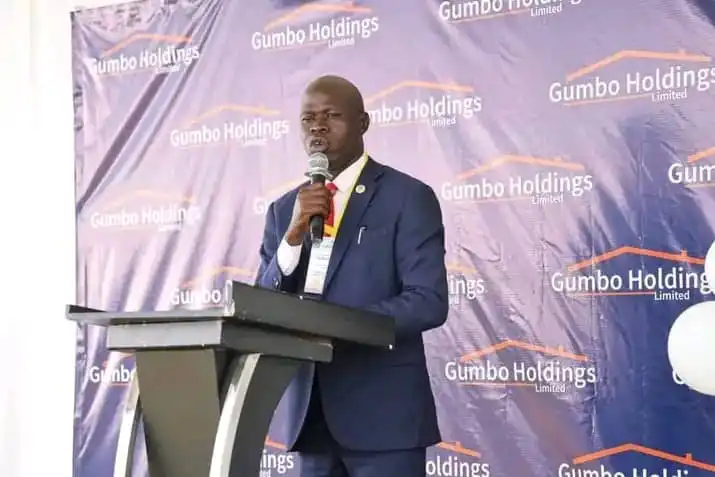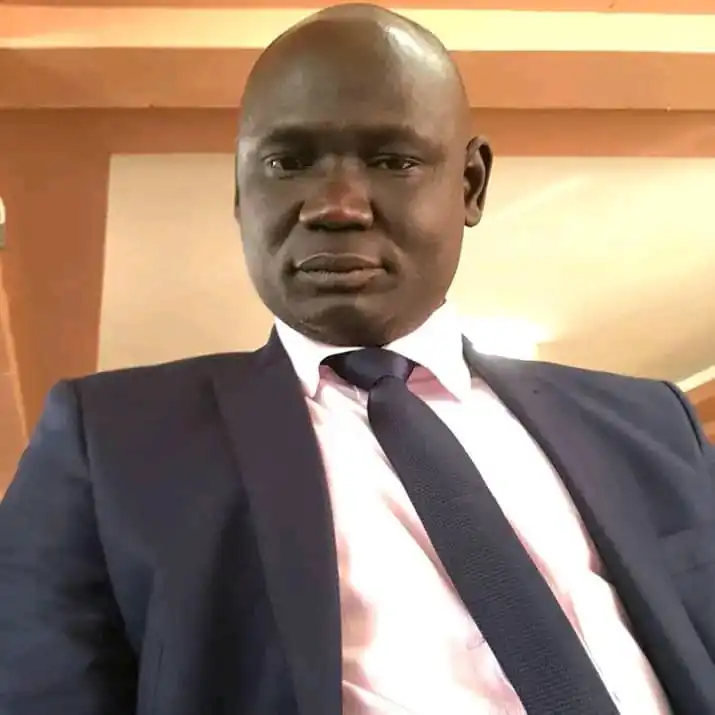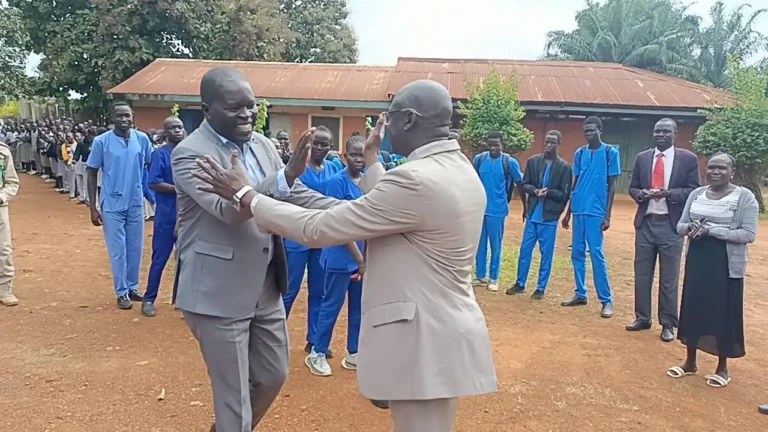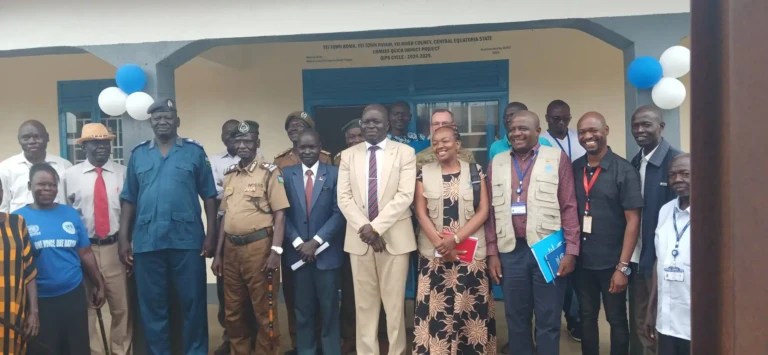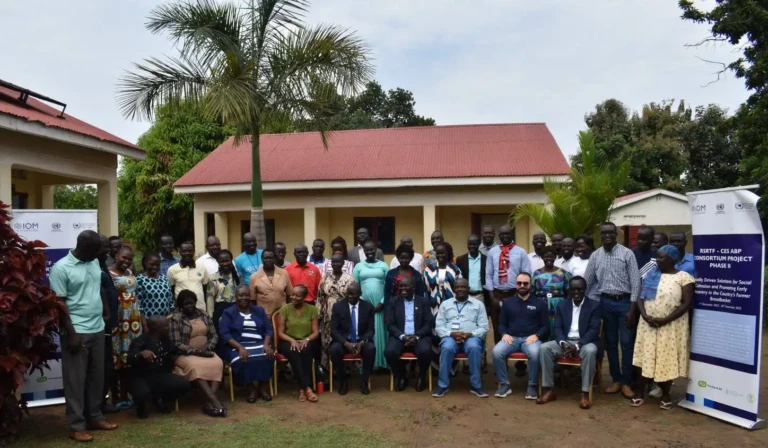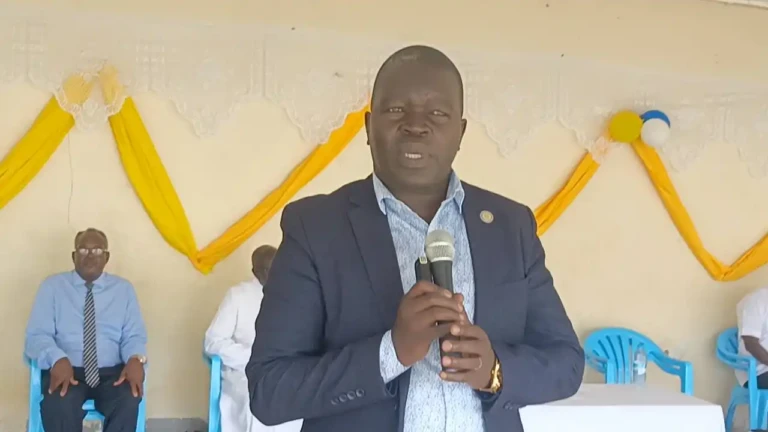![[OPINION] – Legal Ignorance: The Other Silent War in South Sudan [OPINION] – Legal Ignorance: The Other Silent War in South Sudan](https://radioyei.org/wp-content/uploads/2025/06/victor-batali-the-earth-is-crying-and-south-sudan-must-respond-2025-1024x768.webp)
Victor Batali Silas is a lawyer and environmental rights defender who has litigated various human rights abuse cases and championed environmental conservation in Yei River County.
South Sudan is a nation grappling with political instability, economic hardship and the deep scars of prolonged conflict. This conflict has severely undermined the legal system, leading to a breakdown of law and order, fostering a culture of impunity and limiting access to justice for many vulnerable citizens.
The ongoing unrest has not only weakened institutions and eroded public trust in the rule of law, but also restricted citizens’ knowledge of their legal rights. As a result, access to justice has become increasingly difficult, leaving many exposed to exploitation.
Studies show that many South Sudanese are unaware of their legal rights when engaging with law enforcement or the judiciary, making it difficult to navigate the legal system. Although the constitution guarantees free legal representation for the destitute, in practice it is rarely provided due to a severe shortage of resources, lawyers and functional institutions, conditions worsened by poverty and conflict.
As the International Development Law Organization (IDLO) notes: rights mean little if those entitled to them are unaware of their existence. Due process holds little value for those who are illiterate or unable to understand legal proceedings. Courts are almost useless to people who cannot afford transport to reach them. And justice should not be confined to courtrooms alone.
This is why legal empowerment is essential. It involves equipping people with the knowledge, skills and confidence to claim their rights and hold power accountable. The rule of law only exists when it works for all.
Legal empowerment emphasises strengthening the capacity of individuals and communities to understand, use and shape the law to improve their lives and challenge injustice. It moves beyond a passive view of the law as something imposed from above, fostering proactive engagement so that people can actively use legal mechanisms to protect their rights. It begins with the fundamental idea: Know Your Rights.
My aim is to highlight the injustices and legal inequalities suffered by the people of South Sudan as a direct consequence of limited access to legal information and empowerment. This lack of access has not only denied people their rights, but also prevented them from seeking redress or resolving conflict. It has ultimately restricted their ability to live dignified lives.
When I speak of legal empowerment, I am not referring to academic legal theory, but to the everyday reality where human dignity collides with the powerlessness born of legal ignorance. It is in these raw, exposed spaces where people suffer silently, unaware of their rights, unable to defend themselves, and unarmed against exploitation.
Imagine the despair of a farmer whose land is taken illegally, their family thrown into poverty because they did not know their property rights. Consider the anguish of a worker exploited and robbed of wages because they lacked knowledge of labour laws. Think of a community poisoned by pollution because they did not know their environmental rights. These are not theoretical examples. They reflect the lived experiences of millions across South Sudan.
In such darkness, legal empowerment becomes a spark of hope and a catalyst for change. It is not just about legal services. It is about giving individuals and communities the tools to assert their rights, challenge injustice and shape their own futures. It means transforming ignorance into confidence, silence into action.
Legal empowerment is not a handout. It is a hand up. It builds the capacity of people to act as their own advocates and defenders. It turns passive recipients of aid into active participants in the pursuit of justice.
This work is not merely about sharing legal information. It is about cultivating a culture of legal awareness, ownership and trust in the law. It is about building a society where the law serves as a shield for the vulnerable, not just a weapon for the powerful.
Legal empowerment is essential. It is the foundation of a just and fair society, a barrier against tyranny and a guarantee against abuse. It embodies the principle that everyone is equal before the law and that justice must be for all, not just a privileged few.
Yet despite its importance, legal empowerment is often underfunded, undervalued and overlooked. It is mistakenly treated as a secondary concern in development. That must change. We must invest in legal empowerment, support the organisations and individuals championing it and integrate it across all areas of governance and development in South Sudan.
Legal literacy is not a luxury. It is a public good. It is an investment in dignity, justice and democratic resilience.
Let us build a South Sudan where legal empowerment is a right, not a privilege. A country where every individual and community is equipped to claim their rights, seek redress and shape their own destinies.
Let us be the generation that chooses knowledge over ignorance, justice over oppression and empowerment over dependency. Let us finally make legal empowerment a lived reality for all through action, not just words.
In the words of Nelson Mandela, “Education is the most powerful weapon which you can use to change the world.” Let legal empowerment be our weapon of change and our legacy for the generations to come.
About the Author
Victor Batali Sillas is a lawyer and environmental rights defender who has litigated numerous human rights cases and led environmental conservation campaigns in Yei River County and Juba, South Sudan. He is the founder of the Forestry Conversers Association (FCA-SS) and co-founder of the Centre for Legal Aid and Justice (CLAJ-SS).
Currently, he serves as the Executive Director of the Justice for Refugees Network Organisation (J-RENO), which provides legal aid, psychosocial support, ADR services, governance advocacy and economic empowerment for refugees and host communities.
Contact:
Tel: +211 920 518 189 / +256 775 703 865
Email: victorsillas06@yahoo.com
Disclaimer: Access Radio promotes open dialogue and diverse perspectives. Access Radio remains committed to impartiality and does not endorse any political or legal stance published in opinion or commentary articles.
Discover more from Access Radio Yei News
Subscribe to get the latest posts sent to your email.

